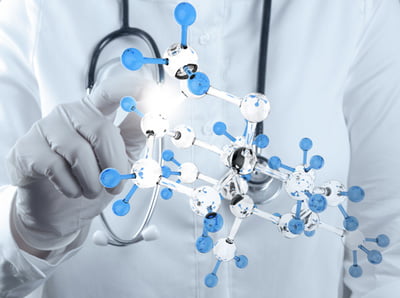Innovate UK awards £300k grant for virtual laboratory
Posted: 8 January 2016 | Victoria White | No comments yet
The virtual laboratory will establish the environmental impact of drugs earlier in discovery and development while dramatically reducing both the cost of environmental assessments and the need for animal testing…


SimOmics, a University of York spin-out backed by the Royal Academy of Engineering’s Enterprise Hub, has been awarded a £300,000 grant from the UK’s innovation agency Innovate UK to develop a ‘virtual laboratory’.
The virtual laboratory will establish the environmental impact of drugs earlier in discovery and development while dramatically reducing both the cost of environmental assessments and the need for animal testing.
Working with pharmaceutical giant AstraZeneca, the University’s Environment Department and Exeter School of Biosciences, SimOmics is developing a pioneering “Virtual Fish EcoToxicology Laboratory” that will mathematically model the exposure, uptake, metabolism and effects of future drugs on different species of fish before the drug is developed.
The models will also enable scientists to prioritise legacy drugs lacking chronic fish toxicity data for definitive environmental impact assessments, in a cost effective manner that will also reduce the need for animal testing.
Regulations require that before authorisation, new active pharmaceutical ingredients must undergo an environmental risk assessment (ERA).The SimOmics “Evidence Bioscience” platform will be the first in the world that can accurately predict the end-to-end journey that drugs will take from the patient’s body into wastewater and river systems, and even predict their effect on fish reproduction and growth. It may also have the potential to simulate the effect of future drugs on humans.
Technology could reduce toxicology testing costs by a third
In the UK alone, the chemical industry, including pharmaceutical firms, spends tens of millions of pounds each year conducting toxicology tests on fish. This new technology could reduce that cost by a third. Standard toxicology tests, involving a fish experiment, can take anything from a few days to one year to conduct, depending on the complexity and scope of the test and the mode of action of the drug or chemical being tested. The SimOmics system could perform the same tests – using computer simulations – in just minutes.
The transparent and evidence-based virtual laboratory will also generate a robust audit trail of data subsets from each test. This will enable companies to demonstrate that they have tested all active pharmaceutical ingredients to a high standard. AstraZeneca is contributing their expertise in target conservation, read across and environmental toxicology data to the project.
Virtual laboratory for leishmaniasis
SimOmics is also part of a consortium that recently secured almost £1m from the National Centre for the Replacement, Refinement and Reduction of Animals in Research (NC3Rs) to develop a “virtual laboratory” to boost the search for new treatments for leishmaniasis, a tropical disease responsible for an estimated 30,000 deaths a year.
And SimOmics recently developed a powerful web-based tool – the “SimOmics Evidence” platform – that will allow drug companies to submit new drug ingredients for ‘virtual drug trials’ to help reduce R&D costs and refine drug development before animal tests and clinical trials.
Professor Jon Timmis, CEO of SimOmics, said: “Our technology will dramatically de-risk the testing of drugs and their interactions with fish. We also see future applications for testing the environmental impact of everything from new pesticides to printing ink. Ultimately, we could also model the effect of future drugs on humans to ensure that new treatments are already refined and developed to a much higher standard – before the first clinical trials ever take place.”
Related topics
Gene testing
Related organisations
SimOmics



